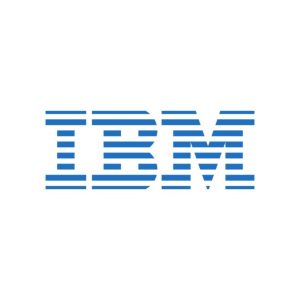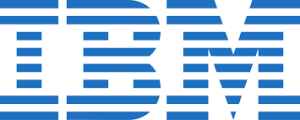- All
- Favorite
- Popular
- Most rated

IBM Planning Analytics: Administer the Technical Environment – Local
This course provides Administrators with guidance on installing and administering the IBM Planning Analytics - Local environment.

Reducing Unfair Bias in Machine Learning
This course will give you an overview on the concept of fairness which helps in building trust in AI and how

IBM watsonx Orchestrate: Getting started with Automation Builder
This course is designed to teach users how to create automations on IBM watsonx Orchestrate, by showing examples of decision and workflow to automate tasks.

IBM Process Mining: Running a Process Analysis
This course provides instruction in the full IBM Process Mining project lifecycle.

Excel basics with IBM Robotic Process Automation
In this course, you learn the basic commands for manipulating Excel in IBM RPA. Among the actions to work with Excel are reading and writing in an Excel file.

IBM Robotic Process Automation programming 101
In this course, you get started with the IBM RPA Studio tool to develop and publish your first scripts in IBM Robotic Process Automation language.

IBM Robotic Process Automation – Basic I
In this course, you learn the basics of IBM RPA Studio: commands, variables, collection, among others.

What is Conversational AI?
This course introduces learners to Conversational AI and its associated technologies, historical development, contemporary forms and applications, all with a particular emphasis on business.

IBM Watson OpenScale Methodology
You will learn how Watson OpenScale on the IBM Cloud lets business analysts, data scientists, and developers build monitors for artificial intelligence (AI) models to manage risks.

IBM Cognos Analytics: Dashboard Essentials (V11.1.x)
This course teaches authors how to create dashboards in IBM Cognos Analytics so users can explore and interact with their data and gain insight into their business.

IBM Robotic Process Automation – Intermediate II
This course is a continuation of the Intermediate I course and teaches about error handling, script calls and vaults.

Integrating IBM RPA with external APIs
In this course, you learn about APIs and how integrate the IBM RPA with web APIs by developing scripts with HTTP requests.

Windows Applications Automation with IBM Robotic Process Automation
In this course, you learn to automate Windows applications with IBM RPA. You become familiar with the windows and controls concepts, and learn to set the basic commands by using the recorder tool.

IBM Robotic Process Automation – IVA
The IVA course aims to present the construction of an IVA (Intelligent Virtual Assistant).

What is Natural Language Processing (NLP)?
This course introduces key concepts and methods in Natural Language Processing (NLP), the subfield of data science and artificial intelligence that deals with computer interaction with human language.

Overview of IBM Cloud Pak for Data for Solution Architects
This course introduces the learner to the Cloud Pak for Data platform.

Associate Solution Architect of IBM Cloud Pak for Data: Learning Path Overview
This course introduces the learner to the Learning Path for Solution Architects for Cloud Pak for Data, on the Associate level.

Developing orchestrated scripts with IBM RPA Studio
In this course, you will learn how to develop orchestrated scripts from scratch, based on an example scenario.

IBM Manta Metadata Administration Demonstration
This course explores Manta's fundamentals and top features that are most relevant to Metadata Administrators.

Unsupervised Learning
This course introduces you to one of the main types of Machine Learning: Unsupervised Learning.

IBM Robotic Process Automation – Intermediate I
This course covers more complex features of IBM RPA Studio: email, web and windows automation.

Customer Workload Environment
In this course, you should learn about the technology considerations and dependencies as it relates to application migration of client workload environments using IBM Cloud for Financial Services®.

Introduction: Customer Care in the Age of Generative AI
This course introduces Customer Care in the Age of Generative AI.

Logging, Monitoring, and Event Management Tools with DevSecOps
In this course, you will explore IBM Cloud® logging, monitoring, and event management tools with DevSecOps.
The Founding of IBM and Its Evolution Over the Years
IBM’s roots trace back to the early 20th century, when it was initially founded as the Computing-Tabulating-Recording Company (CTR) in 1911 through the merger of three companies that manufactured various devices, including punch card machines and time-keeping equipment. In 1924, the company adopted the name International Business Machines, which aligned with its ambitions to lead the global market in technological solutions. During the 1930s and 1940s, IBM expanded its influence by introducing automated tabulation machines, which became essential tools for businesses and governments. IBM’s success continued with its innovations in mainframe computers in the 1950s and 1960s, which solidified the company’s position as a leader in computing technology. The IBM 701, released in 1952, was the company’s first large-scale electronic computer, and it marked the beginning of IBM’s dominance in the mainframe market.IBM’s Notable Milestones
Throughout its history, IBM has consistently been a leader in groundbreaking technology. Some of the company’s most notable milestones include:- 1964: The launch of the IBM System/360, a family of mainframe computers that could be used for a wide variety of tasks. This innovation was a turning point in the computing industry, allowing businesses to invest in technology that could grow and adapt with their needs.
- 1997: IBM’s Deep Blue, a chess-playing computer, made history by defeating world chess champion Garry Kasparov, showcasing the potential of artificial intelligence.
- 2011: IBM’s AI-powered system, Watson, won Jeopardy! against human champions, further cementing IBM’s leadership in AI research and development.
- 2016: IBM became one of the first companies to provide cloud services with its IBM Cloud platform, which today remains one of the most widely used enterprise cloud platforms worldwide.
- 2020: IBM advanced its quantum computing efforts by launching the IBM Quantum Experience, a cloud-based platform that allows researchers and developers to access quantum computers.
IBM’s Educational Offerings and Certifications
IBM’s dedication to education is evident in the wide range of courses it offers across multiple domains of technology. The company’s IBM Skills Academy is an industry-leading educational platform that provides learners with in-demand skills. IBM’s courses on EdCroma include specialized training in:- Data Science: Master the fundamentals and advanced techniques of data analytics, machine learning, and AI.
- Cloud Computing: Learn to develop and manage cloud infrastructure using IBM Cloud and other industry-leading tools.
- Blockchain: Gain expertise in blockchain development and its applications in finance, supply chain, and cybersecurity.
- Cybersecurity: Learn about the latest threats and how to defend against them, leveraging IBM’s extensive experience in securing enterprise-level systems.
- Quantum Computing: Explore the future of computing with IBM’s quantum education programs, which provide hands-on experience with quantum algorithms and development.
IBM’s Approach to Learning
IBM’s educational philosophy is centered on continuous learning and skill development. As technology evolves, so do the demands of the workplace. IBM ensures that learners stay ahead of the curve by offering courses that reflect the latest trends and technological advancements. Courses are designed to be interactive and engaging, with hands-on projects and case studies that help students apply what they’ve learned to real-world scenarios. Additionally, IBM emphasizes the importance of industry collaboration. Many of the company’s courses are developed in partnership with leading academic institutions and industry experts. This ensures that the curriculum is not only academically rigorous but also aligned with the needs of the business world.Why Choose IBM as Your Educational Partner?
IBM’s legacy of innovation, combined with its commitment to education, makes it a top choice for learners who want to excel in the tech industry. By enrolling in IBM’s courses on EdCroma, students gain access to:- World-class instructors with decades of industry experience.
- Cutting-edge resources and tools for hands-on learning.
- Globally recognized certifications that enhance career prospects.
- A community of industry professionals and thought leaders who are shaping the future of technology.

